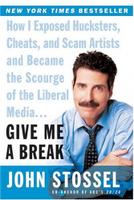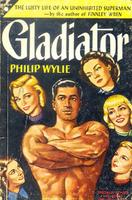 [James Leroy Wilson says that last week in New Orleans — forced evacuation of people from their property, confiscation of guns — was his “last straw.” He writes: “I think we are...short on time. Liberty’s enemies in America must be confronted and defeated soon — now. Even though liberty’s friends appear to be few in number.” New, serious attempts to build coalitions of opposition to the State are obviously needed. To help get us started, I present here a February 2001 post to the LeftLibertarian e-list from the late Samuel Edward Konkin III. It discusses past and (then) current Movement of the Libertarian Left (MLL) efforts to build strategic alliances.]
[James Leroy Wilson says that last week in New Orleans — forced evacuation of people from their property, confiscation of guns — was his “last straw.” He writes: “I think we are...short on time. Liberty’s enemies in America must be confronted and defeated soon — now. Even though liberty’s friends appear to be few in number.” New, serious attempts to build coalitions of opposition to the State are obviously needed. To help get us started, I present here a February 2001 post to the LeftLibertarian e-list from the late Samuel Edward Konkin III. It discusses past and (then) current Movement of the Libertarian Left (MLL) efforts to build strategic alliances.] “Let’s run through what we’re looking for in alliances. ...
“Start with [Murray] Rothbard: he used the Leninist concepts of ‘principled’ and ‘unprincipled’ coalitions. The Principled Coalitions (I’ll abbreviate them PrinCo) are similar to an election coalition. The participants agree on several issues and, above all, don’t want the other alternatives to win more than they don’t want their coalition partners to get whatever they will get as their respective pay-offs. (I know, it doesn’t sound all that principled, either, but, hey, that’s politics.)
“Unprincipled Coalitions are usually based on a single issue. An example would be Group A and Group B allied against C and D to stop a war, but then A & C join forces against B & D to stop a tax. ...
“Having actually participated in ‘real’ parliamentary coalitions (model parliament in my University back in Canada) and in actual elections (too young to vote but not to nominate or campaign for candidates for the real parliament in Ottawa), I discussed such concepts with Rothbard almost from my first meeting with him. It’s a subject on which he considered me experienced enough to be an equal, not just an adoring student. I got into some of the complexities with him, pointing out how (back in 1969) he was losing some of the RLA (Radical Libertarian Alliance) to Collectivist Anarchists by the coalition he had forged with the SDS. Within months (not because of our discussion, I assure you) he had veered ‘Right’ and the RLA was ‘reorganized’ as the Citizens for a Restructured Republic (CRR) to form parliamentary alliances to support an anti-war candidate (Oregon’s Senator Mark Hatfield was the Republican favorite; Wisconsin’s William Proxmire was the Democrat choice).
“I objected to both. By the 1972 election, Rothbard was urging votes for...Richard M. Nixon! Four years earlier, he was nominated in a coalition of RLA and a Maoist group for the Peace and Freedom Senatorial candidacy (he fortunately lost).

“This sounds pretty bizarre, I’ll admit. From Rothbard’s Unprincipled Coalition stature it made sense. It was a constant shift of tactics aimed at the same ‘Stop the War’ by the most effective means. But there was another element to his alliances: he wanted to build an independent Libertarian Movement as well. In that, he largely succeeded, but he did so by splitting from the Right in the first place, back around 1960, but with a vengeance in 1964 when he (wrongly, in my opinion) attacked most Libertarians’ support of Barry Goldwater and preferring Lyndon Johnson as the Peace Candidate (need I say more?) and then urging Libertarians to quit YAF and join the SDS in 1965.
“Now here was the one case where Rothbard argued for a PrinCo. If you read his defense of the SDS in Left and Right, he argues that they are more decentralist, more individualist, certainly more isolationist than the ‘New Right’ and maybe even worthy heirs of the Old Right (William Appleman Williams surely was) — not just that they were good on anti-war issues.
“Finally, Rothbard’s argument for his Coalition with the Paleoconservatives (Thomas Fleming, Rockford Institute, Chronicles) finds several points of agreement between them and his Paleolibertarians; again, it’s a PrinCo. It broke up almost immediately after Murray’s death in 1995.
“And his PrinCo with the SDS broke up when Karl Hess led the ‘Left’ Libertarians and Anagoric Anarchists on a march to Fort Dix and came back soaked with teargas and paranoid in flight (Hotel Diplomat, Columbus Day, 1969, and I was a witness and participant).
“What is the ‘we’ that are few? What is the ‘they’ that are many? Hardcore anarcho-communist/anarchosyndicalist theoreticians are certainly outnumbered by hardcore agorist intellectuals. And, among the general population, there are far more people who are sympathetic to some version of the free-market libertarian position than that of the ‘other’ anarchists. Even among ‘the kids’ our agorist position is as popular or more so than that of the anagoric anarchists, particularly on the web and related Internet/Linux/hacker/privacy issues.
“There is only one class in which anarchocommies (if I may be so familiar) outnumber us: street fighters. (Well, you can throw in Union Organizers, but that’s about as relevant as pointing out there are far more agorist business entrepreneurs than anarchocommunist ones, although there are a few of each.)
“Having hung out with the Black Bloc in Los Angeles, I don’t find them threatening to their fellow anarchists. They are willing to take what they perceive as reasonable risks to thwart the State’s armed forces, much like the ’60s street radicals vs. the National Guard. What would happen if they get a ‘whiff of grapeshot’ like Kent State? We don’t know...yet.
“And we don’t know what [Noam] Chomsky would do in a revolutionary situation. He did support the Spanish Anarchists during the Civil War against his relatives and most of his fellow students who followed the Stalinist line, so that’s a good sign, though he was quite young then. He does speak proudly of doing so when interviewed for his film biography.
“What we need to do is analyze various groups out there and see if any have enough points in common for a PrinCo; independently, analyze and discover any issues we care about enough to form Unprincipled Coalitions that might actually win, and then slug it through the hard way alone on the rest.
“There are some activities where we need to ‘go it alone’ regardless: education, recruitment, agitprop, building cadre, publications (now including online) and internal communication. That’s a short list.
“And MLL’s classic position, still valid, is the only issue that’s worth the risk of agorists surfacing from the Counter-Economy is opposition to The Health of the State, War.
“If there are Anarchists who are not in MLL, NLA or the Revolutionary Agorist Cadre who nonetheless can be trusted to oppose the State consistently and continually, they would be able to work with us both aboveground and belowground. I cannot think of anyone else with whom we could work on several issues at once. Hence, if they exist as just defined, these anagoric Anarchists are the only possible candidates for a Principled Coalition with MLL.”
-----
Technorati Tags:
New Libertarian,
Movement of the Libertarian Left



































